Covid-19: How Essex is fighting to stave off tier 3 threat
- Published
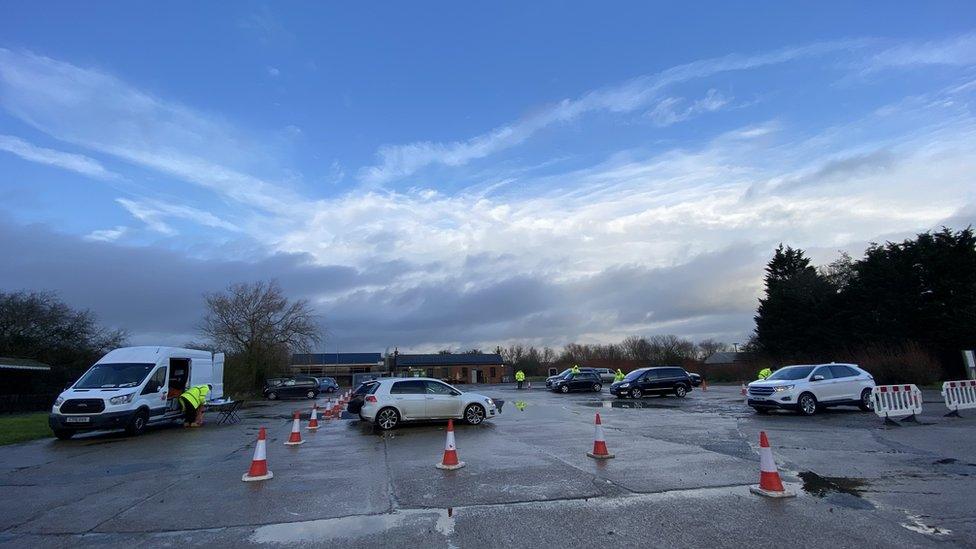
A new testing site has been set up in Basildon
Two months ago, Essex County Council asked the government for tighter Covid controls. Now one of its towns has the third-highest infection rate in England, Essex is battling to avoid the toughest tier three restrictions. What is being done to reduce case numbers in the county?

The town with England's third-highest infection rate
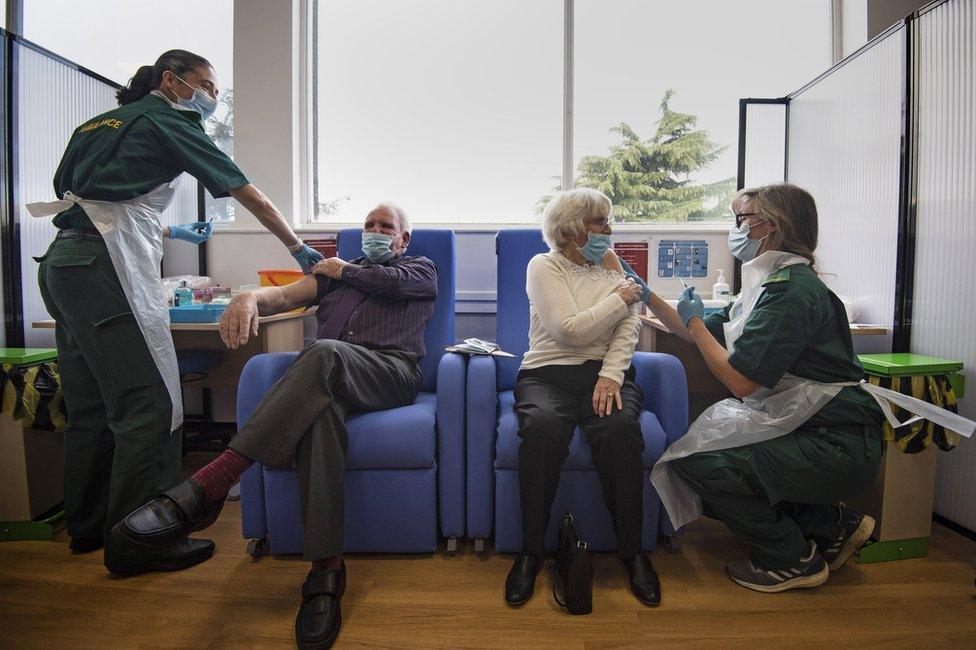
Victor (left) and Penny Griffiths getting their vaccine jabs this week at Basildon University Hospital in Essex
Basildon, Essex's fourth largest town with a population of about 185,000, has England's third-highest infection rate, with 476 cases per 100,000 people in the week to 6 December.
To combat the rising rates, the council has begun offering lateral flow tests, which give results in about 30 minutes.

On Tuesday, the town's hospital began administering the Covid vaccine as part of the NHS vaccination programme.
Among those vaccinated were grandparents Victor and Penny Griffiths, who both worked at the hospital from the 1960s.
"Don't be worried at all," Mr Griffiths said. "You're checked by a doctor before the injection to make sure you don't have any allergies so once you've passed the doctor stage and you go for the injection, go ahead and have it done because it is a lifesaver."
However, while the over 80s have been prioritised for the vaccine, data from the county council suggests that nearly 40% of cases in the district were linked to schools.

Schools closing early

Neil Dunn, head teacher at Bromfords School and Sixth Form College, said cases had surged in recent weeks
Eight of the nine secondary schools in Basildon will close on Friday, a week earlier than originally planned,
The decision on whether or not to close was left by the government and Essex County Council to school head teachers.
John Spence, the county council's cabinet member for health and adult social care, said: "It is entirely the decision of the head teachers and the governors.
"We firmly believe it is not our role - or we have no authority any way - to tell them to close.
"We've had meetings with both the primary and the secondary school heads. We've talked through the situation, we have left them to make the decision and we have supported them in their communications with parents."
You might also like:
The Conservative-run county council's move to leave the any closure decisions to individual schools has been criticised by Basildon Council's Labour leader Gavin Callaghan, who said the county council should have made the "tough call" instead and closed schools.
"No head teacher is going to say they are in favour of blanket closures publicly. It's not their job to create these policies," Mr Callaghan said.
"Councils and governments are there to lead and make tough calls, not push the difficult stuff down on teachers to decide."
Neil Dunn, head teacher at the 1,100-pupil Bromfords School and Sixth Form College in Wickford, said his school moved to remote learning on Thursday because of Covid infection rates.
It is about three miles (4.8km) outside of Basildon.
"We went through the vast majority of this term having no cases and then, within the space of three weeks, we've had 37 positive cases in the school.
"I think the community has been largely supportive of what we're trying to do and have recognised it is a difficult time for everyone and that we have put the students above everything else."

Mobile testing units
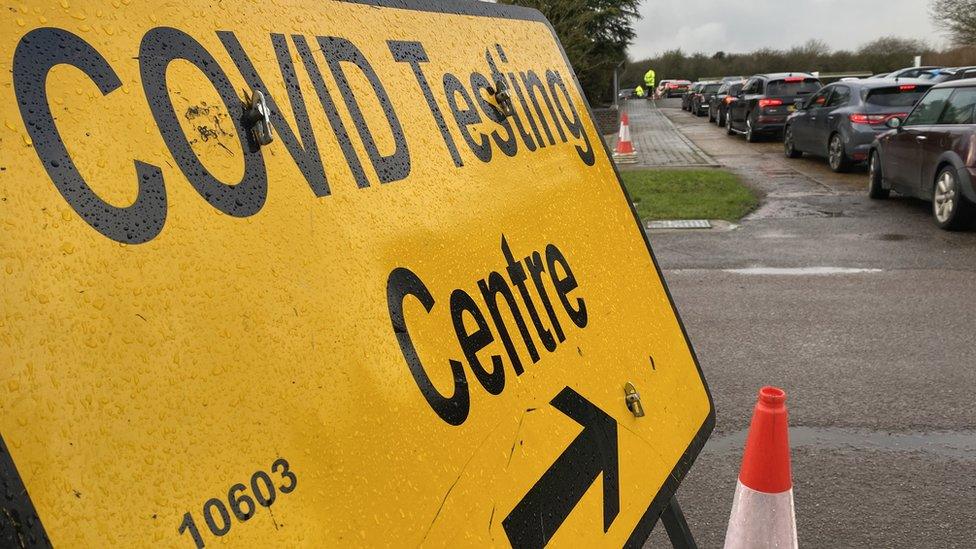
One of the confirmed sites for a mobile testing location is at Wat Tyler Country Park in Basildon.
The government's efforts to control the infection rate in London schools will also include parts of Essex.
Under the programme, announced on Friday, an extra 10 mobile testing units will be available in the county at Southend, Basildon, Canvey Island, Harlow and Brentwood.
Krishna Ramkhelawon, Southend's director of public health, said: "What we would like is for all of our school communities to start doing some testing at this point."
One of the confirmed sites for a mobile testing location is at Wat Tyler Country Park in Basildon.

Where are the mobile testing stations?
All of the testing areas below are now up and running for the community, with a particular focus on secondary school age children:
Shoebury Park, Elm Rd, Shoeburyness
Car Park 12, Cherrydown West, Basildon
The Paddocks, Long Road, Canvey Island
HTS LTD, Mead Park Industrial Estate, Harlow
The Brentwood Centre, Doddinghurst Road, Brentwood
Harlow Town Football Club car park, Elizabeth Way, Harlow
Harlow Rugby Club car park, Howard Way, Latton Bush, Harlow
Long Stay Car Park 3, Southend Airport, Southend-on-Sea
Barleylands Farm Park & The Village, Barleylands Road, Billericay
Wat Tyler Country Park, Pitsea Hall Lane, Pitsea

A spokesman for Essex County Council said the rate in Basildon was "really concerning" and "expected to climb still higher".
Testing, the council said, would be by appointment only.

What is the risk of Essex going into tier three?
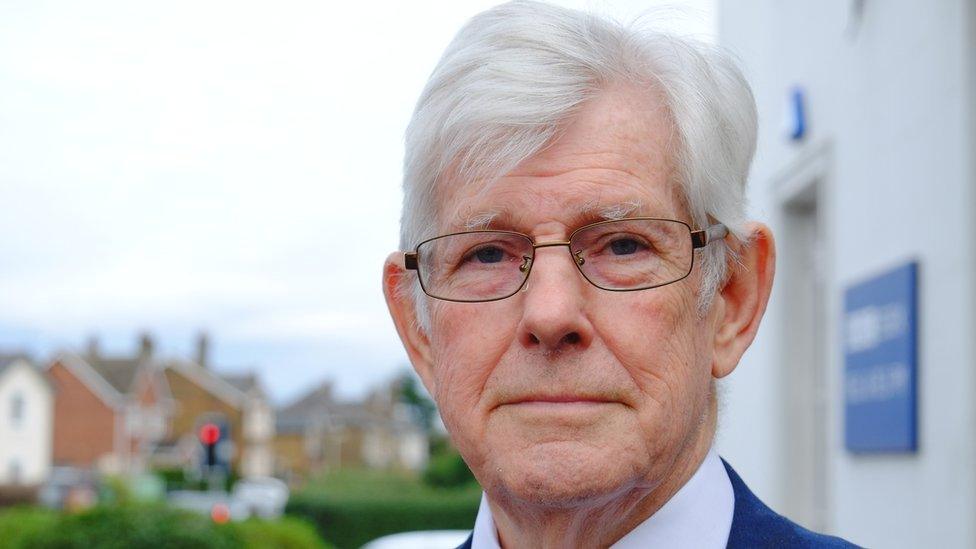
David Finch, Essex County Council leader, said the county was doing "everything" in its power to reduce the current infection rate
David Finch, the county council's leader, said while some parts of the county had very high infection rates, the average for the county was 169.4 per 100,000 which, he claimed, "would be a clear tier two position".
"We are doing everything in our power, including the continued roll-out of testing, working with schools, businesses, and our health and voluntary sector partners, to stem the increases we are seeing," he said.
"It is our absolute, top priority. We will continue to do everything in our power to reduce the infection rate in the south and across the whole county."
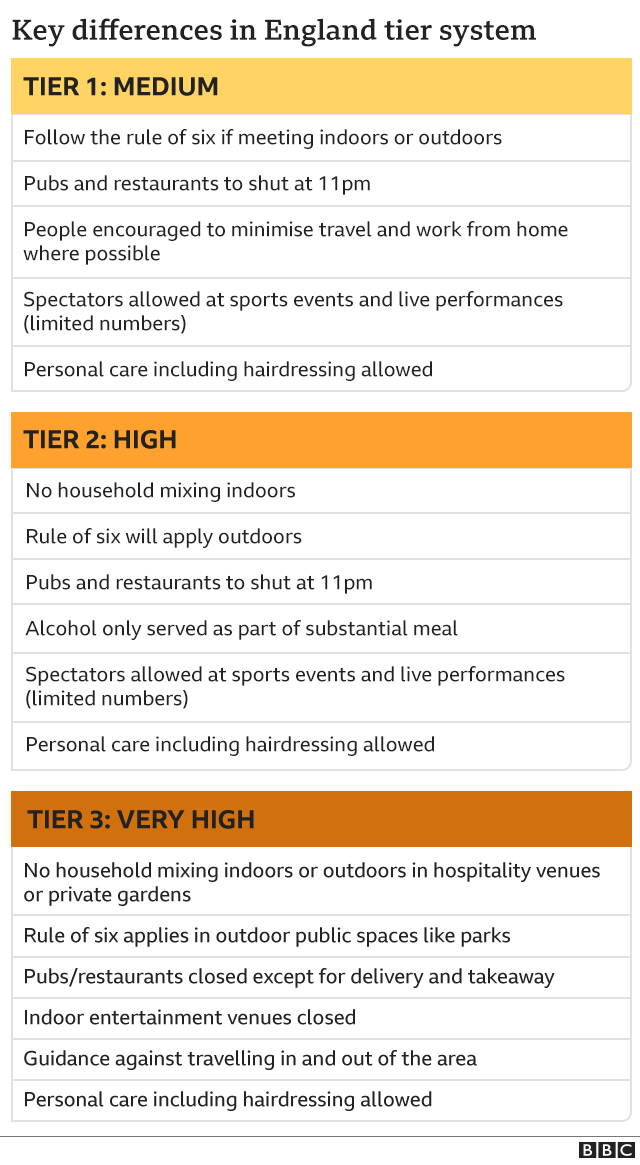

A SIMPLE GUIDE: How do I protect myself?
IMPACT: What the virus does to the body
RECOVERY: How long does it take?
LOCKDOWN: How can we lift restrictions?
ENDGAME: How do we get out of this mess?


Find BBC News: East of England on Facebook, Instagram and Twitter. If you have a story suggestion email eastofenglandnews@bbc.co.uk